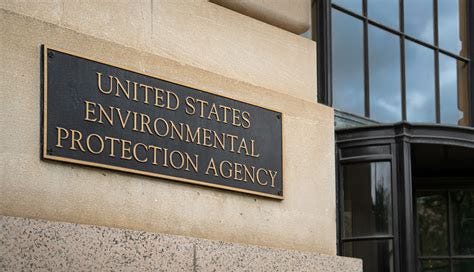EPA grants West Virginia authority to oversee deep earth carbon sequestration
The Mountain State gains this responsibility despite its poor environmental track record
Although the Environmental Protection Agency was established by Richard Nixon, a Republican president, the far right of the GOP has considered the EPA one of the worst examples of what they refer to as big government, an intrusion on business and a driver of taxation. Despite the EPA’s efforts to keep our air and water clean, GOP administrations since Ronald Reagan have tried to cripple and weaken the agency.
In 1981, Reagan appointed right-wing ideologue Ann Gorsuch to head the agency, which she downsized, slashing the budget by 22 percent. She also sided the EPA with “free market,” industry-friendly principles, such as loosening restrictions on the use of pesticides. Under George W. Bush, the EPA closed its technical and scientific libraries and loosened regulations as well. So Donald Trump appointing Lee Zeldin—who is ideologically aligned with Gorsuch—to head the EPA is nothing new. The GOP taking an axe to the EPA is nothing new, either.
Gorsuch believed in the doctrine of New Federalism, i.e., handing over to the states many responsibilities the federal government had taken on since the New Deal. Zeldin is following in Gorsuch’s footsteps. On February 18, Zeldin granted West Virginia Class VI permitting authority. This means the EPA relinquished its oversight of geological carbon sequestration in the Mountain State. Now West Virginia will oversee the regulation of injecting CO2 into its deep, underground rock formations. Previously, Louisiana, North Dakota, and Wyoming had been granted Class VI permitting authority. While the EPA still retains some oversight, when a state is granted the authority over sequestration, state law instead of EPA regulations govern that process.
Carbon sequestration is a way of staving off the buildup of the greenhouse gas and mitigating climate change. Biological sequestration is capturing carbon in forests, mangroves, and grasslands. Geological sequestration is trapping carbon dioxide in the earth, usually in depleted oil and gas reservoirs and coal seams. If you’re gong to pump CO2 into the ground, West Virginia, with its history of natural gas extraction and coal mining, is the perfect place.
A lot of tech and business folks like sequestration projects because there are usually contracts to sign and money to be made. It is also a climate change Get-Out-of-Jail-Free card, giving folks the impression that we can pump oil and burn coal without consequence. There is also the perception on the part of business that the federal EPA is backlogged in its process. and that states will expedite the sequestration projects.
Upon the transfer of oversight, Shelly Moore Capito, who represents West Virginia in the Senate and who chairs of the Senate’s Environment and Public Works Committee, said, “I’m thrilled that Administrator Zeldin has affirmed his support for West Virginia’s approval to permit Class VI wells for carbon capture, and that we are officially bringing this important authority to those who know our state best.”
It is a bit strange for Capito to embrace a climate change solution. While she admits to the scientific consensus, saying, “the climate is changing and that greenhouse gas emissions are contributing to that change,” Capito has opposed just about every effort to keep the planet cool. In 2023, she joined other GOP legislators in opposing President Joe Biden’s ability to declare a climate emergency. and the federal government’s ability to restrict methane emissions.
The EPA
There can be problems with injecting carbon dioxide into the underground netherworld. The gas can escape, rendering the process ineffective in whole or in part. Some of the gas can enter buildings, creating problems of ventilation and human health. The gas can also wind up in groundwater, which could render the water more acidic. The increased acidity can dissolve minerals and result in the release of metal and metalloid contaminants that pollute the groundwater. That is why the EPA has a review process, including a public comment period, that takes at least two years from well application to final decision. The review process is governed by provisions of the Clean Water Act.
Critics of New Federalism point out that the federal government steps in because states often lack the will or the resources to look after concerns over the environment, health, education, or other matters. If West Virginia’s track record on mining oversight is any indication, things may not work out well as they sequester their carbon.
The problems go back decades. Years ago, in one of the first exposés of the mountaintop removal (MTR) crisis, an examination of violation and complaint files for all West Virginia mines revealed most fines to be low, even for seemingly serious violations. The average fine was only about $800. While the maximum can be $5,000 per incident, nearly 80 percent of fines recommended by inspectors were reduced by the state’s Department of Environmental Protection (DEP) after officials of the mining companies protested.1
In an investigation for the Charleston Gazette-Mail on mountaintop mining, reporter Ken Ward found that the West Virginia DEP did not know the number of acres that had been permitted for mining by mountaintop removal (MTR). The department did not keep track of the number of permits it granted. Ward found that for one-third of the acres that were to be mined by MTR, the most popular post-mining land use proposed by the mining companies and approved by West Virginia’s DEP, was “fish and wildlife habitat,” a use that is not allowed under federal reclamation law.2
What do you think? Is this a good idea to give West Virginia and other states the responsibility to oversee carbon sequestration? Do you believe in the New Federalism? Or do you want a strong, federal EPA?
Penny Loeb, “Shear Madness,” US News and World Report (August 3, 1997).
Ken Ward, special report to the Charleston Gazette-Mail (September 5, 2003).





No way.
Strong federal EPA for sure